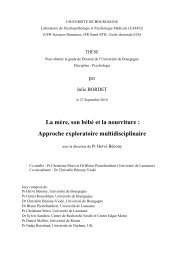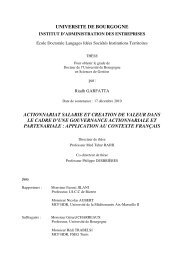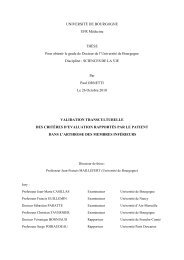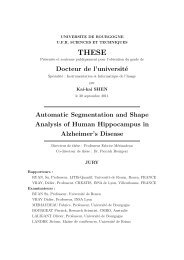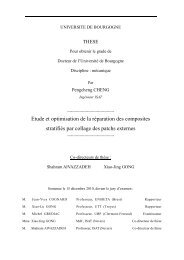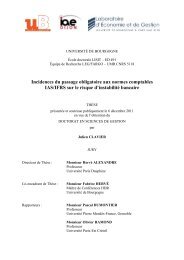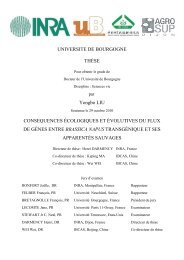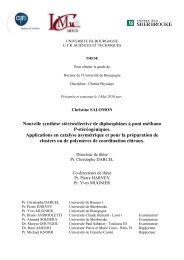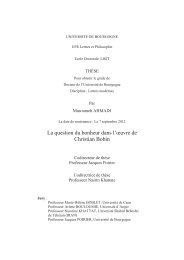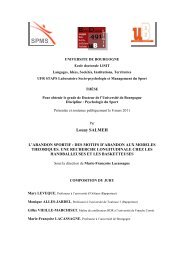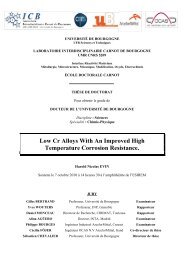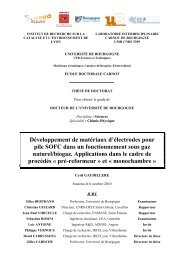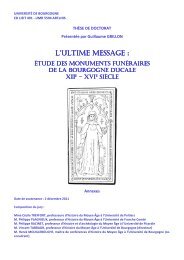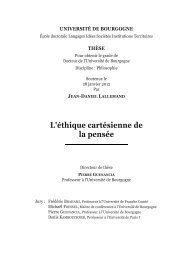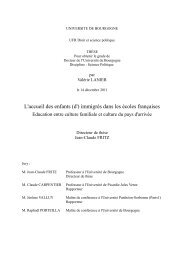Higher education in Asian countries and the role of international ...
Higher education in Asian countries and the role of international ...
Higher education in Asian countries and the role of international ...
You also want an ePaper? Increase the reach of your titles
YUMPU automatically turns print PDFs into web optimized ePapers that Google loves.
3.4.4.1 Neo-<strong>in</strong>stitutionalism<br />
42<br />
Neo-<strong>in</strong>stitutionalism was revived by John W. Meyer <strong>in</strong> 1977 <strong>and</strong> later on ref<strong>in</strong>ed by Paul<br />
DiMaggio, Walter Woody Powell <strong>and</strong> o<strong>the</strong>rs. Neo-<strong>in</strong>stitutional <strong>the</strong>ory ma<strong>in</strong>ta<strong>in</strong>s that <strong>in</strong>stitutions<br />
are socially constructed programs or rule systems that operate as established, constra<strong>in</strong><strong>in</strong>g<br />
environments (Jepperson, 1991). Neo-<strong>in</strong>stitutionalism social <strong>the</strong>ory focuses <strong>the</strong> approach<br />
<strong>in</strong>stitutions <strong>in</strong>teract, react <strong>and</strong> <strong>the</strong> way <strong>the</strong>y affect society at local, regional <strong>and</strong> <strong>in</strong>ternational<br />
levels. This <strong>the</strong>ory ma<strong>in</strong>ta<strong>in</strong>s that states are <strong>in</strong>terdependent <strong>and</strong> <strong>the</strong>re exist complex relations<br />
among <strong>the</strong>m. Accord<strong>in</strong>g to this <strong>the</strong>ory IGOs are not accidental birth but a deliberate <strong>and</strong><br />
cont<strong>in</strong>uous endeavor <strong>of</strong> states to achieve shared <strong>in</strong>terests <strong>in</strong> a complex <strong>in</strong>ternational network <strong>of</strong><br />
different entities. Due to this reason IGOs are ga<strong>in</strong><strong>in</strong>g popularity <strong>and</strong> importance, <strong>and</strong> <strong>the</strong>ir<br />
population has seen a big <strong>in</strong>crease dur<strong>in</strong>g <strong>the</strong> last century.<br />
3.4.4.2 Institutional liberalism<br />
Institutional liberalism or liberal <strong>in</strong>stitutional <strong>the</strong>ory propagates that <strong>in</strong>stitutions, at <strong>in</strong>ternational<br />
level, are a mean to <strong>in</strong>teract, establish <strong>and</strong> enhance cooperation between/ among states. The<br />
<strong>in</strong>terest constellations, with<strong>in</strong> <strong>the</strong> context <strong>of</strong> IGOs, are complex phenomenon because <strong>of</strong><br />
<strong>in</strong>terdependent relations among states. As a result no state can achieve maximum ga<strong>in</strong>s <strong>in</strong><br />
isolation <strong>and</strong> all powerful states need to depend on o<strong>the</strong>r states to establish durable mutual<br />
relations. Liberal <strong>in</strong>stitutional <strong>the</strong>ory claims that IGOs foster congenial environment that help to<br />
achieve constellation <strong>of</strong> objectives, i.e. human welfare <strong>and</strong> socio-economic development, without<br />
conflict<strong>in</strong>g with states‟ ideologies.<br />
3.4.4.3 Neoliberal Institutionalism<br />
Neoliberal <strong>in</strong>stitutionalism school <strong>of</strong> thought believes that <strong>in</strong>ternational <strong>in</strong>stitutions play an<br />
important <strong>role</strong> <strong>in</strong> coord<strong>in</strong>at<strong>in</strong>g <strong>in</strong>ternational cooperation, <strong>and</strong> nation-states are concerned with<br />
absolute ga<strong>in</strong>s <strong>and</strong> <strong>the</strong> prospects for cooperation ra<strong>the</strong>r relative ga<strong>in</strong>s to o<strong>the</strong>r nation-states.<br />
Accord<strong>in</strong>g to this philosophy, states are <strong>in</strong>terested <strong>in</strong> IGOs because <strong>of</strong> <strong>the</strong> possibility <strong>of</strong> higher<br />
mutual ga<strong>in</strong>s. At <strong>in</strong>ternational level various types <strong>of</strong> <strong>in</strong>tergovernmental cooperation are possible<br />
even <strong>in</strong> <strong>the</strong> absence <strong>of</strong> centralized system or <strong>in</strong> an anarchic world system <strong>and</strong> such cooperation<br />
results <strong>in</strong> treaties, conventions <strong>and</strong> IGOs. Neoliberal <strong>in</strong>stitutionalists believe that repeated<br />
<strong>in</strong>teractions, among <strong>the</strong> states, push <strong>the</strong>m to enter <strong>in</strong>to a setup <strong>of</strong> cooperation <strong>in</strong> apply game<br />
<strong>the</strong>ory to f<strong>in</strong>d solutions to knotty problems while study<strong>in</strong>g <strong>in</strong>stitutions. Accord<strong>in</strong>g to Keohane



